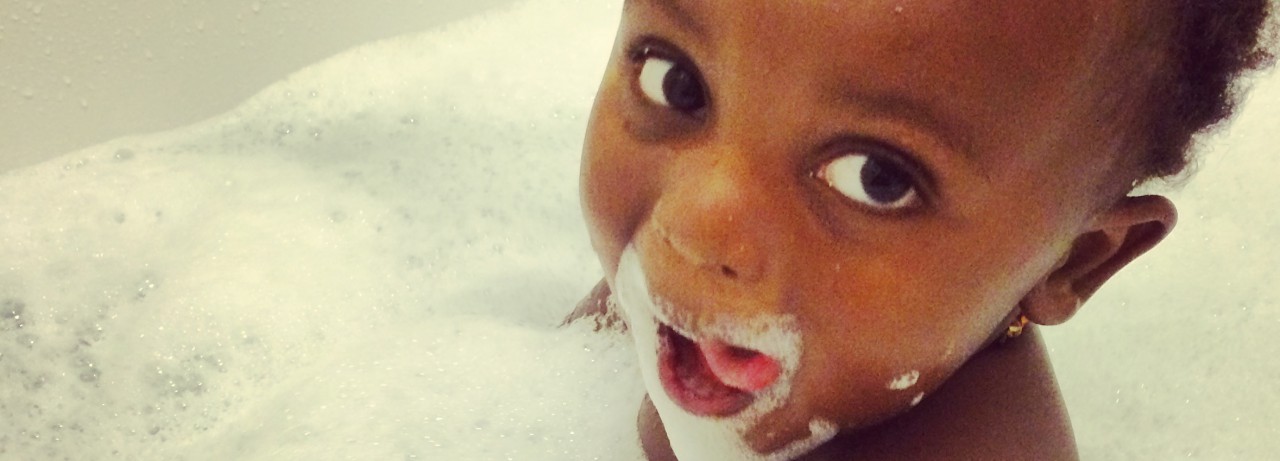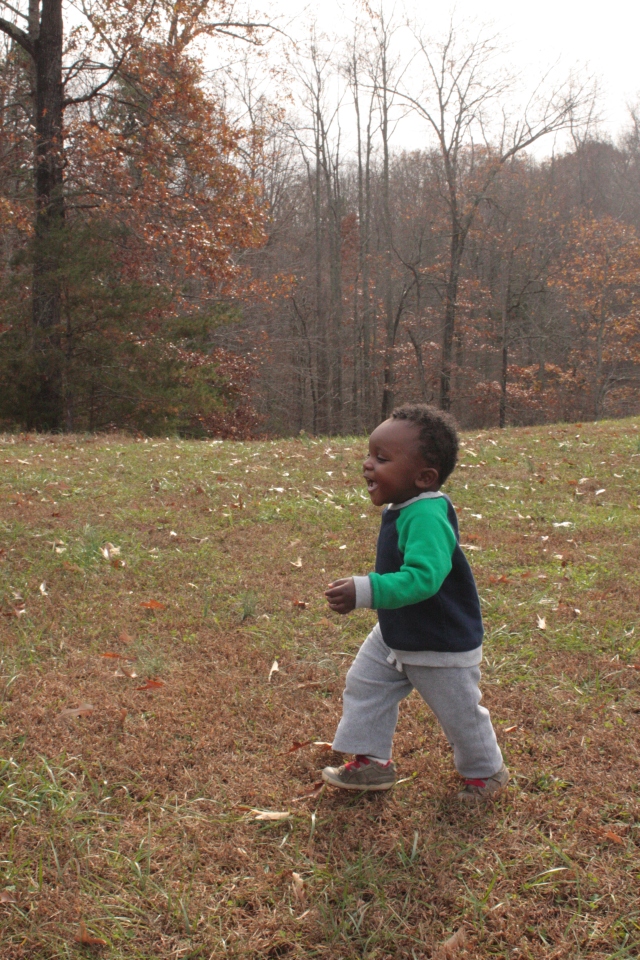
Miles loves to be outside. When he was a teeny tiny thing and crying for one reason or another, I could always take him outside on the porch at our old house to calm him down. One look up at the trees surrounding our yard and he would quiet right down and go to sleep. Even now, if he’s restless, agitated, or upset, a trip out to the yard is just the thing to turn his day (and mine) right around.
We’ve planted the seeds early for a life-long love affair with nature and the outdoors by taking him hiking ever since he was big enough to fit in the backpack. This weekend, he was able to take a substantial hike for the first time on his own two legs. I was amazed at how far he got — he walked more than a mile, smiling and laughing as he stepped over logs, picked up sticks, and kicked fallen leaves. He absolutely loved it and I’m psyched to have a new hiking partner that I don’t have to carry the whole way (I’m also psyched that he slept for three hours afterwards).
Nature has always been my antidote; there is nothing like a walk in the woods to cure me of everything from anxiety to stress and even loneliness and depression. The Great Outdoors has been proven–with actual research--to lower blood pressure, decrease stress hormones, and act as an anti-depressant on the brain, boosting serotonin and other feel-good hormones. Being outside, surrounded by trees and grass and feeling the wind and sun on your face is just plain good for you.
Being in the forest, whether I’m walking, running, horseback riding or just sitting under a tree–calms my mind and reminds me that I am connected to something much bigger than myself. Being outside, and especially in the woods, is an escape from all the noise. Surrounded by nature, I can breathe. Fresh air, trees, and wildlife fill me with love and gratitude and remind me what it means to be alive.
I believe that it’s especially important for children (and adults) who have heavy things like adoption on their hearts and minds to seek connection with nature. I know that as an adoptee, especially a transracial adoptee, Miles will undoubtedly experience confusion and sadness related to adoption that I won’t be able to resolve for him. So it’s important for me to equip and empower him with the one thing that never fails to lift my spirits: a deep and lasting love of Mother Nature.
When his adoption causes him to wonder who he is and where he belongs in this world, I hope that he will always find comfort in going to the woods. I hope that spending time in nature fills him with a childlike wonder like it does me, and reminds him that that everyone and everything is connected. I hope the sounds of the birds and the wind rustling through the trees will dull any sadness he feels and give him the confidence to soldier on through even the darkest of days. Because no matter what else is going on, the natural world is always a magical place–and he belongs to it just like it belongs to him.
p.s. I believe in the power of the outdoors so much that my day job is all about connecting people to nature. A few months ago, I interviewed Dr. Scott Sampson (from PBS’ Dinosaur Train) about his new book, How to Raise a Wild Child: The Art and Science of Falling in Love with Nature for The Trust for Public Land’s blog. If you have kids, this book is a great read and has cool ideas on ways to nurture a love of nature in your children–whether you live in the city or the country. Little known fact: Dr. Scott and his wife adopted a child, too.




